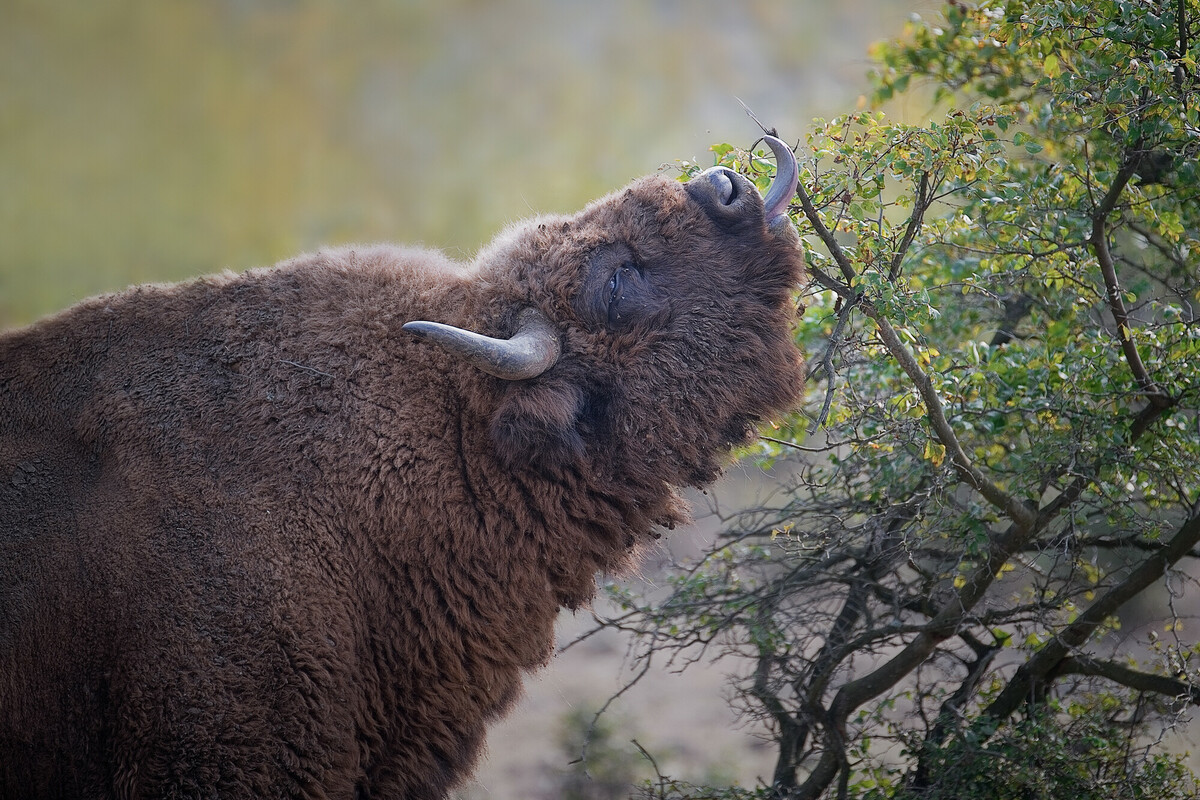Research finds significant ecological benefits after Rewilding Europe’s reintroduction of bison in Romania

European bison, Romania © Stefan Stefanov / Rewilding Europe
11.06.2024
New research has found that the reintroduction of a herd of bison in Europe in 2014 has sparked a cascade of ecological benefits. European bison disappeared from Romania over 200 years ago. ERF grantee partner Rewilding Europe, along with WWF Romania, reintroduced the species to Romania’s Țarcu mountains in 2014 as part of the LIFE Project. With two new groups arriving in May 2024 as part of the second LIFE Project called ”LIFE with Bison”, the herd now reaches 194 bison and is freely roaming across 370 square km of grasslands.
The research, which utilizes a pioneering model crafted by scientists at Yale School of the Environment and funded by the Global Rewilding Alliance, found bison contribute to carbon sequestration and storage within ecosystems. The model, which has been published and peer reviewed in the Journal of Geophysical Research: Biogeosciences, calculates the additional amount of atmospheric CO2 that wildlife species help to capture and store in soils through their interactions within ecosystems. This herd was found to exhibit a potential to capture an additional 54,000 tonnes of carbon annually. This translates to an impressive reduction in CO2 emissions, akin to removing approximately 43,000 average US petrol cars from the roads for a year.
Prof Oswald Schmitz of the Yale School of the Environment in Connecticut in the US, who was the lead author of the report, said: “Bison influence grassland and forest ecosystems by grazing grasslands evenly, recycling nutrients to fertilise the soil and all of its life, dispersing seeds to enrich the ecosystem, and compacting the soil to prevent stored carbon from being released.”
Magnus Sylvén, the director of science policy practice at Global Rewilding Alliance noted that; “This research opens up a whole new raft of options for climate policymakers around the world. Until now, nature protection and restoration have largely been treated as another challenge and cost that we need to face alongside the climate emergency. This research shows we can address both challenges: we can bring back nature through rewilding and this will draw down vast amounts of carbon, helping to stabilise the global climate.”
The return of these keystone species not only revitalises ecosystems but also ignites nature-based tourism and rewilding enterprises in the region. A new eco-complex to boost tourism in the area has already been opened in 2022.
Sebastian Ursuta, the Communications Officer at Rewilding Romania, concluded that; “The bison reintroduction initiative in the Southern Carpathians entered a new stage. Starting 2024, a new LIFE Project, “LIFE with Bison”, aims to boost the existing population, with 40 bison translocated over 5 years, create a favourable coexistence between humans and bison, and a National Action Plan for bison management. We are happy to see the bison thriving here and we are working closely with the local communities to ensure the well-being of both nature and people. The goal is to create a bison-smart community where people become ambassadors of the bison, and the settlements become gateways towards the bison land.”